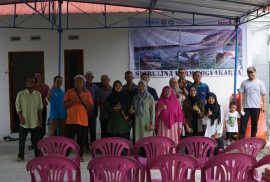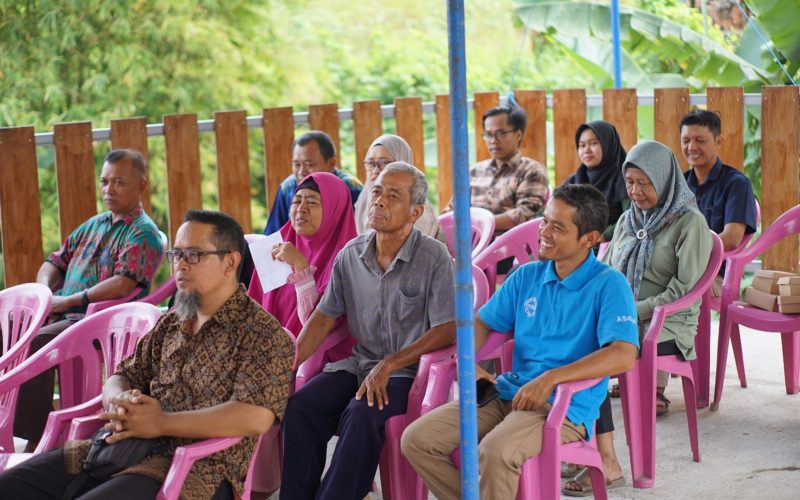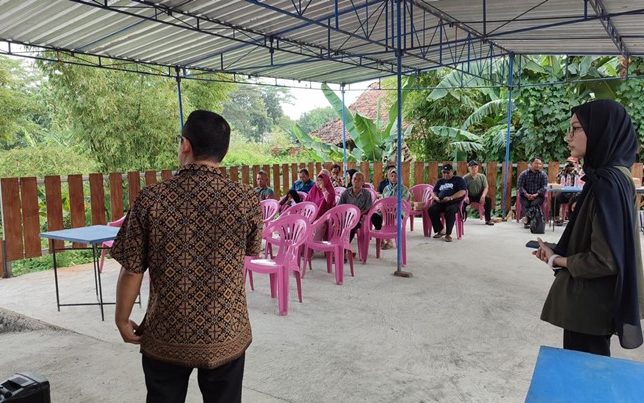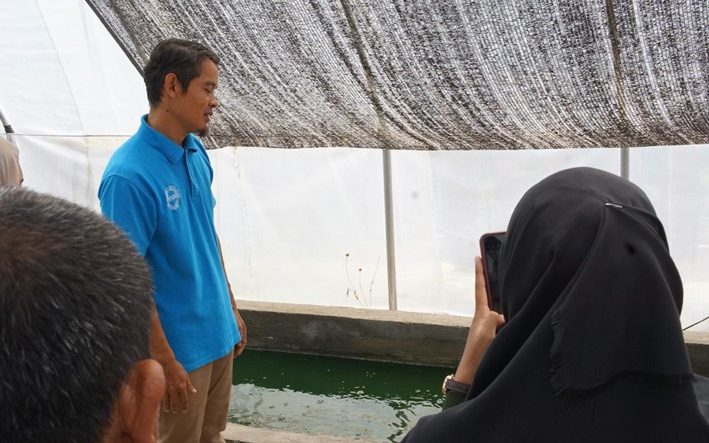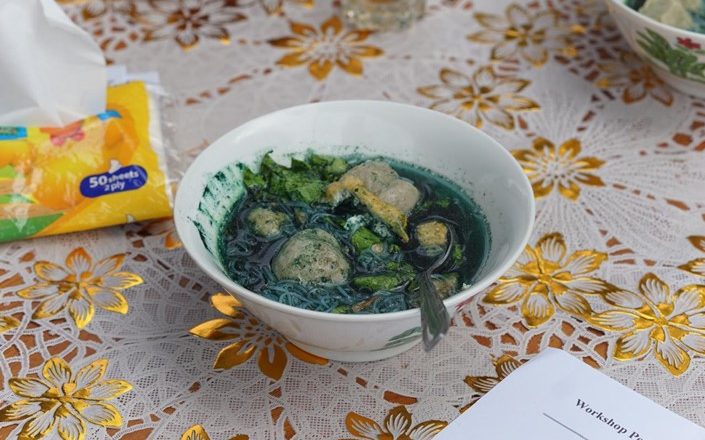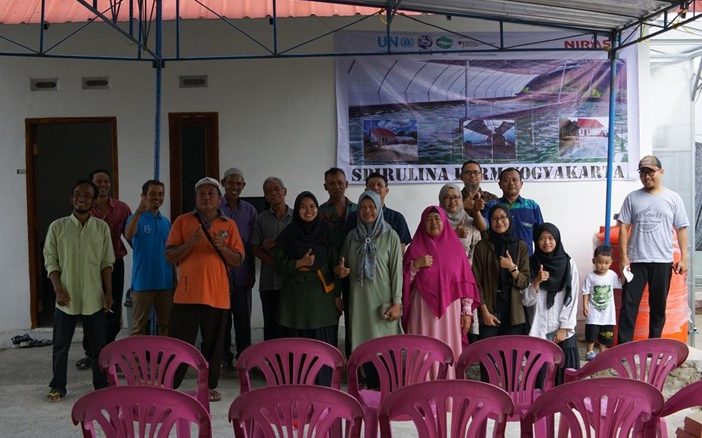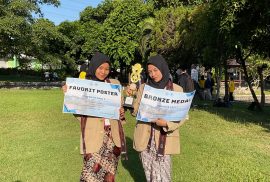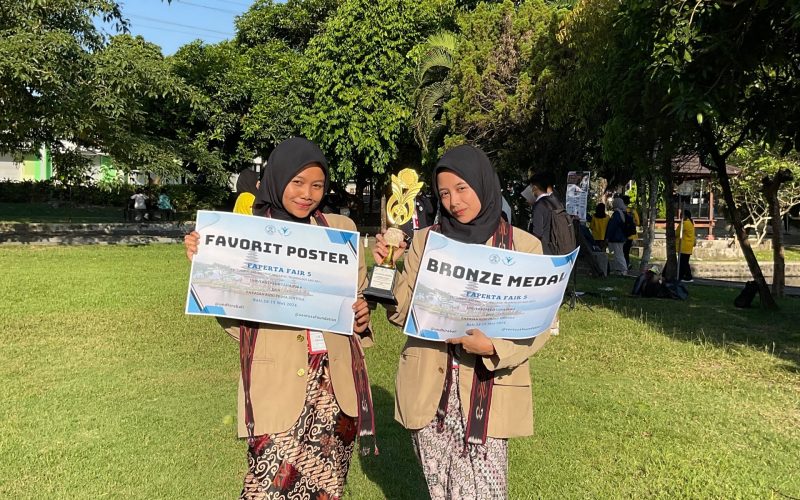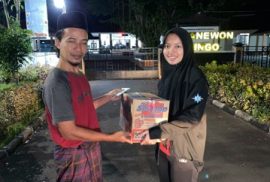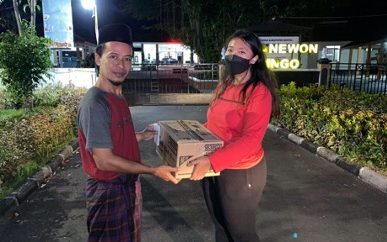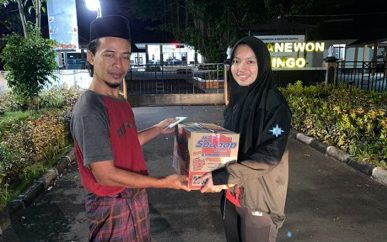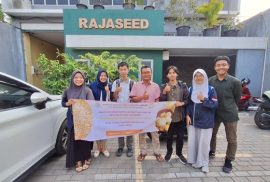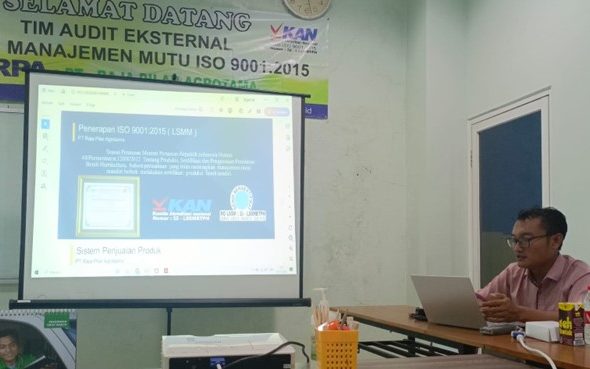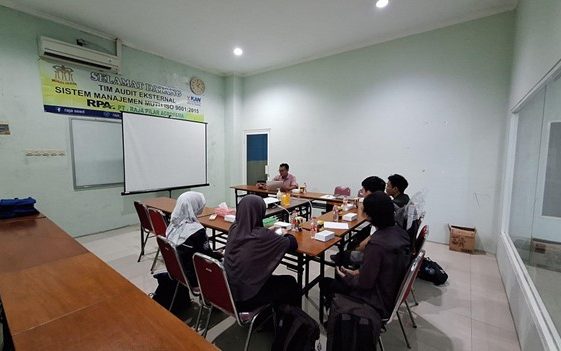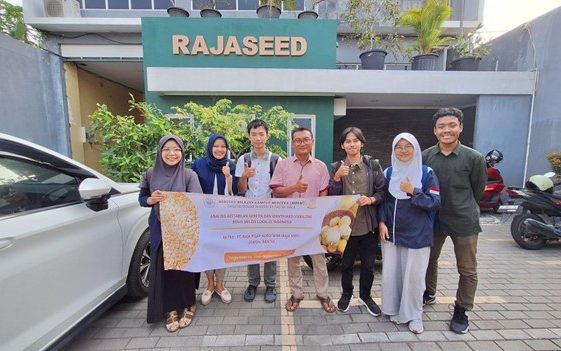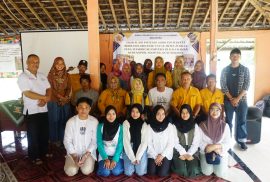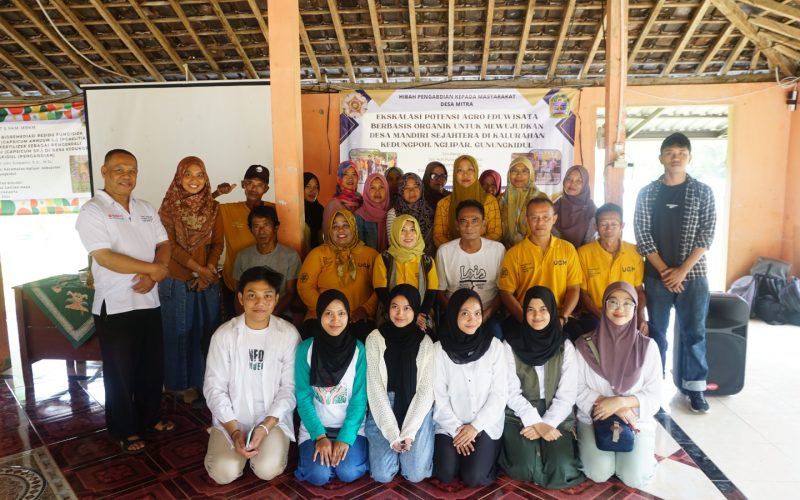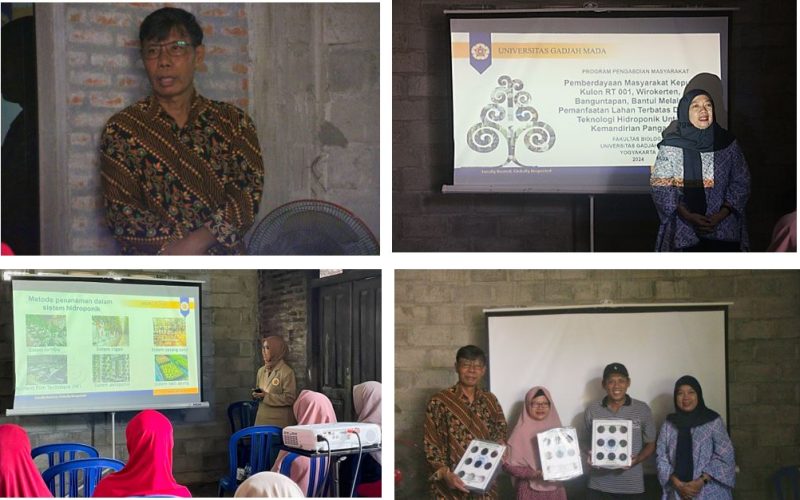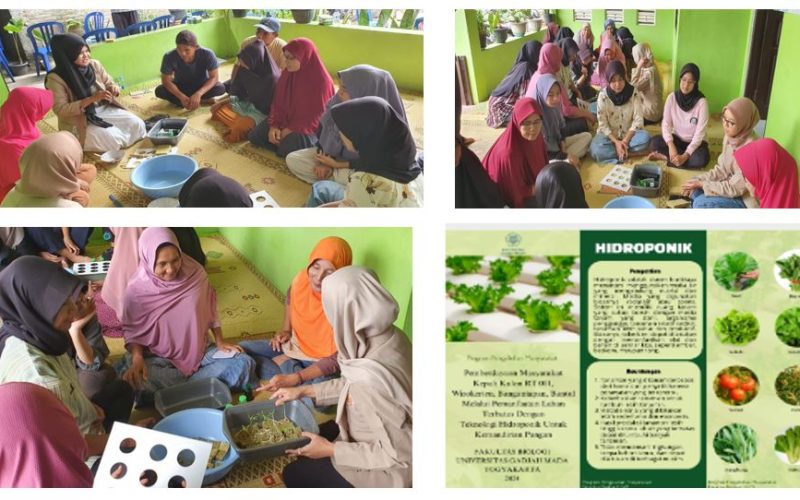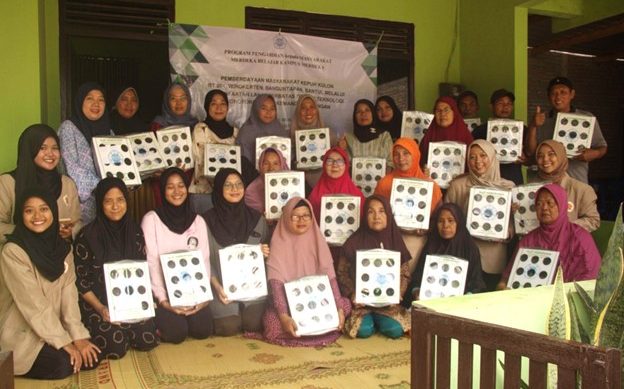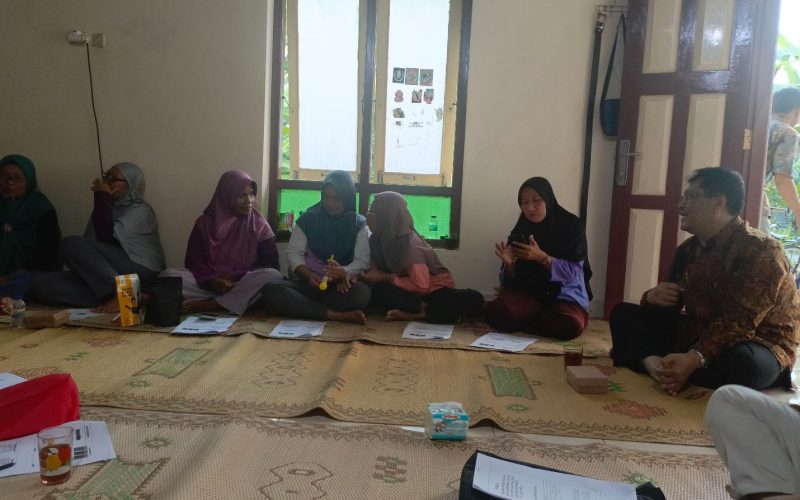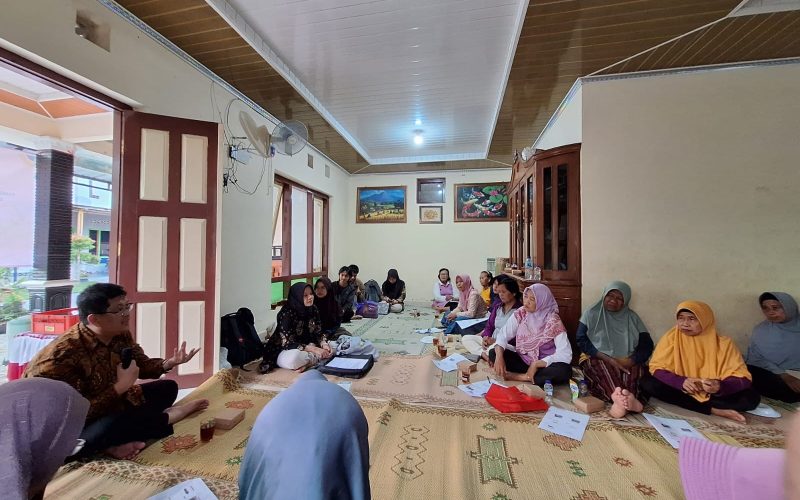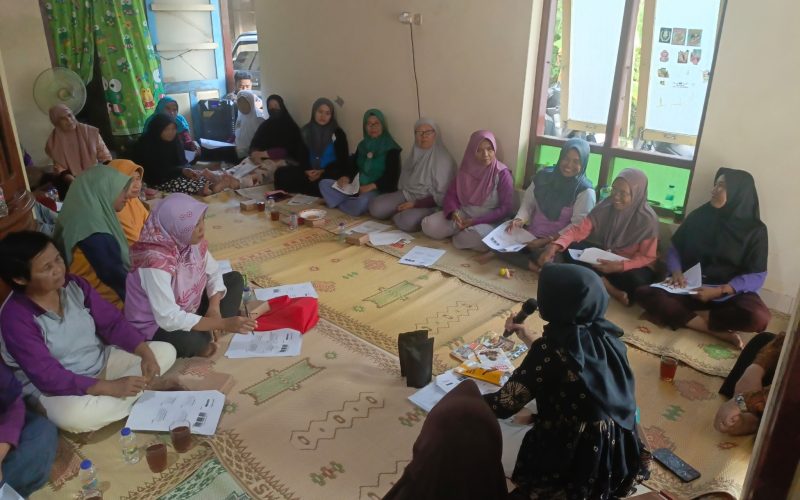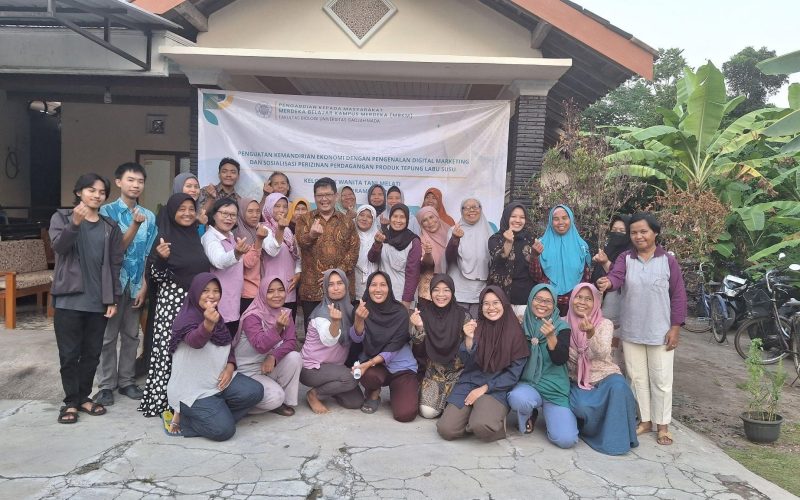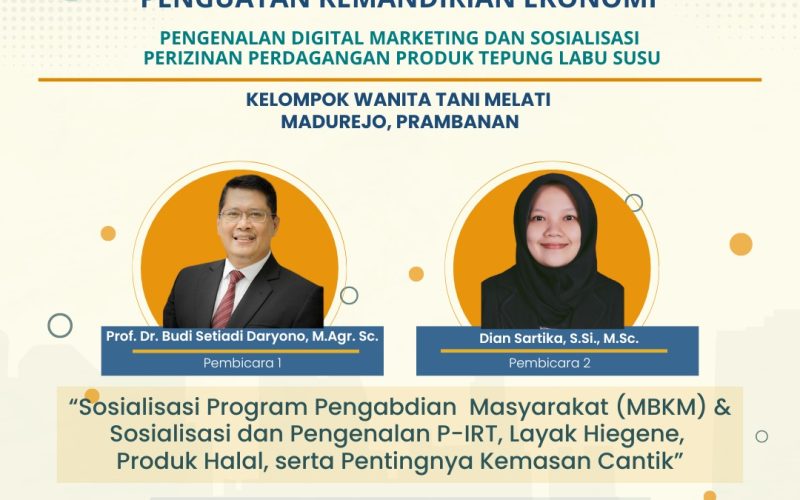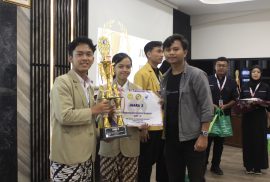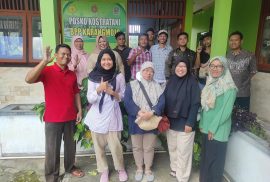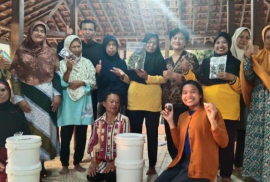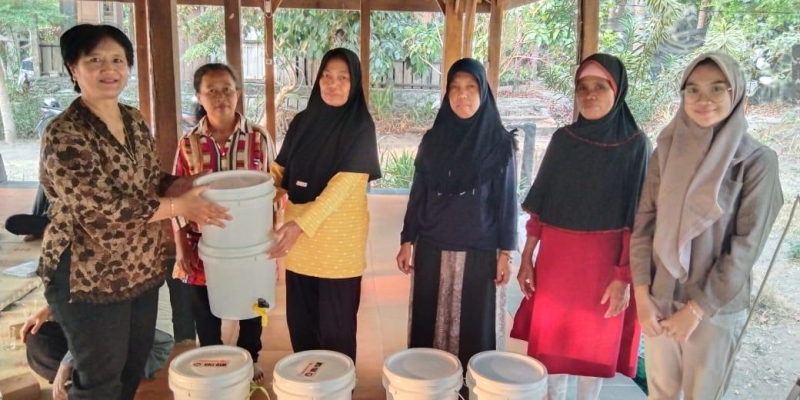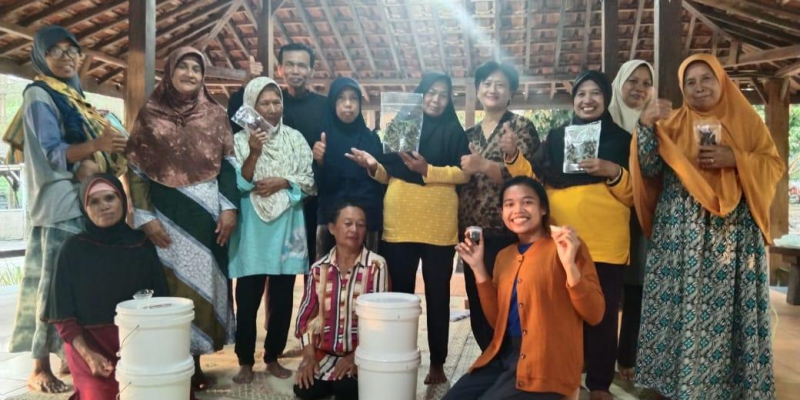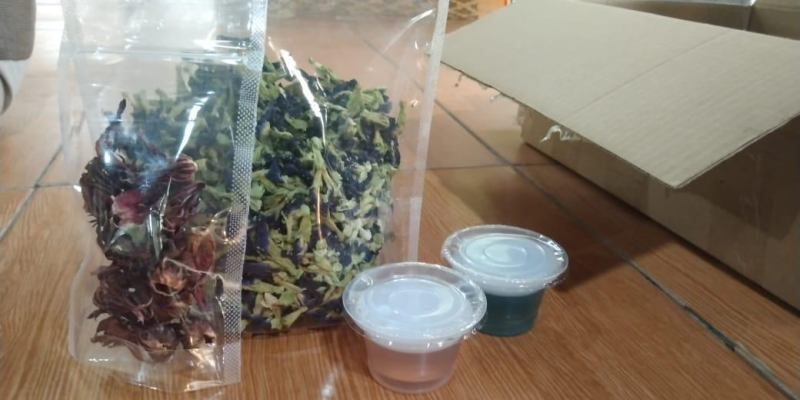SDG 2 : Erase Hunger
The Community Service Team – Independent Learning Independent Campus (PkM-MBKM) of the Faculty of Biology UGM for the year 2024, chaired by Rina Sri Kasiamdari, Ph.D., has successfully conducted a series of Community Service activities at Kepuh Kulon RT 001, Wirokerten, Banguntapan, Bantul. The MBKM PKM program supports SDG 1 No Poverty, SDG 2 No Hunger, SDG 8 Decent Work and Economic Growth, SDG 11 Sustainable Cities and Communities, and SDG 12 Responsible Consumption and Production. The team, consisting of four students, namely Nurindah Musarofah, Hasna Nabila Kusumastuti, Cindy Adisty Rudi Ananda Putri, and Amalia Rizky Fauzi, focused on the theme of simple hydroponic cultivation technology to enhance community food independence. This program is designed to span two semesters. On the even semester, PkM-MBKM activities were conducted on Sunday, May 5, 2024, from 09:00 to 12:00 WIB at the residence of Mr. Zamzuri, the Head of RT 001 Kepuh Kulon. The activities included socialization and practical demonstrations of simple hydroponic cultivation utilizing a wick system. The event was warmly received by 22 residents of RT 001 Kepuh Kulon, as well as Mr. Sunartana, the Head of the Kepuh Kulon Hamlet. In his address, Mr. Sunartana expressed his hope that this program would evolve into a sustainable initiative to address local challenges, urging community members to support its continuity. Mrs. Rina emphasized that the program aims to bolster community food independence by maximizing limited land resources through hydroponic cultivation and encouraged residents to adopt hydroponic practices at their homes.
Socialization activities included providing information on the concept and benefits of hydroponics, suitable plant species for hydroponic cultivation, various hydroponic techniques, types of fertilizers and equipment, and procedures for implementing wick system hydroponics. The wick system was chosen for its simplicity, minimal requirement of tools and materials, and low maintenance costs. During the practical session, residents were divided into four groups of 6-8 individuals, each accompanied by a student mentor to facilitate independent practice. Participants engaged in activities such as seed selection, planting in rockwool, preparation of nutrient solutions, and transplanting seedlings. It is hoped that the residents’ enthusiasm and newly acquired skills will contribute to the sustainability of the program. Additionally, the PkM-MBKM team distributed sets of hydroponic tools to enable residents to continue practicing hydroponic cultivation at home. The PkM-MBKM program will be continued in the odd semester Academic Year 2024/2025 in September with activities to process hydroponic harvests into products that can be used for community food independence.
#SDG 1 No Poverty, #SDG 2 No Hunger, #SDG 8 Decent Work and Economic Growth, #SDG 11 Sustainable Cities and Communities, #SDG 12 Responsible Consumption and Production
YOGYAKARTA, INDONESIA — February 19, 2024 — A team of lecturers led by a lecturer from the Faculty of Biology at Universitas Gadjah Mada (UGM) held an engaging Focus Group Discussion (FGD) with millennial farmers from Kalurahan Karangmojo, Kapanewon Karangmojo, Gunungkidul Regency. This event is part of the Faculty of Biology’s initiative to encourage dialogue and collaboration between the academic world and field practitioners to enhance sustainable agriculture.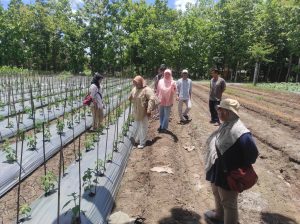
The FGD was held on February 18, 2024, in the meeting room of the Agricultural Extension Center of Kapanewon Karangmojo. The participating millennial farmers represented various backgrounds and experiences in agriculture, ranging from organic farmers to advanced technology farmers. They shared ideas, experiences, and challenges they face in running agricultural businesses in the modern era. The team of lecturers facilitating this FGD was an interdisciplinary inter-faculty team, including members from the Faculty of Biology (Zuliyati Rohmah, S.Si., M.Si., Ph.D. Eng., and Ludmilla Fitri Untari, S.Si., M.Si.), the Faculty of Mathematics and Natural Sciences (Umi Mahnuna Hanung, S.Si., M.Si.), and the Faculty of Pharmacy (Dr. Cintya Nurul Apsari, S.T.P., M.Si.).
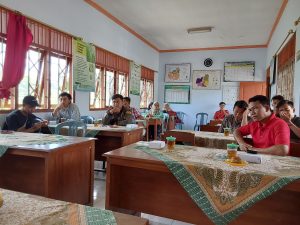 The discussions held during the FGD and field visits covered various topics, including the use of technology in agriculture, organic farming practices, natural resource management, and marketing strategies for agricultural products. The results of these discussions will form the basis for developing more relevant and responsive educational, research, and community service programs tailored to the needs of millennial farmers.
The discussions held during the FGD and field visits covered various topics, including the use of technology in agriculture, organic farming practices, natural resource management, and marketing strategies for agricultural products. The results of these discussions will form the basis for developing more relevant and responsive educational, research, and community service programs tailored to the needs of millennial farmers.
The Faculty of Biology UGM hopes that this FGD will be the beginning of a sustainable partnership between the university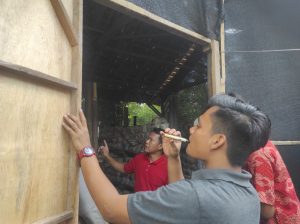 and millennial farmers, bringing tangible positive impacts to the advancement of the agricultural sector in Indonesia. This activity is closely related to several Sustainable Development Goals (SDGs) adopted by the United Nations. The dialogue and collaboration between the Faculty of Biology UGM and millennial farmers can increase farmers’ productivity and income (SDG 1: No Poverty) and support sustainable agriculture that enhances food security and nutrition (SDG 2: Zero Hunger). This initiative also develops more relevant educational programs for millennial farmers (SDG 4: Quality Education), supports economic growth and job creation in the agricultural sector (SDG 8: Decent Work and Economic Growth), and encourages innovation and modernization of agricultural practices (SDG 9: Industry, Innovation, and Infrastructure). The focus on organic farming practices and natural resource management supports sustainable production and consumption (SDG 12: Responsible Consumption and Production), and the sustainable agriculture discussed in the FGD contributes to climate change mitigation (SDG 13: Climate Action). Furthermore, the collaboration between the Faculty of Biology UGM and millennial farmers is a concrete example of partnerships that support the achievement of sustainable development goals (SDG 17: Partnerships for the Goals).
and millennial farmers, bringing tangible positive impacts to the advancement of the agricultural sector in Indonesia. This activity is closely related to several Sustainable Development Goals (SDGs) adopted by the United Nations. The dialogue and collaboration between the Faculty of Biology UGM and millennial farmers can increase farmers’ productivity and income (SDG 1: No Poverty) and support sustainable agriculture that enhances food security and nutrition (SDG 2: Zero Hunger). This initiative also develops more relevant educational programs for millennial farmers (SDG 4: Quality Education), supports economic growth and job creation in the agricultural sector (SDG 8: Decent Work and Economic Growth), and encourages innovation and modernization of agricultural practices (SDG 9: Industry, Innovation, and Infrastructure). The focus on organic farming practices and natural resource management supports sustainable production and consumption (SDG 12: Responsible Consumption and Production), and the sustainable agriculture discussed in the FGD contributes to climate change mitigation (SDG 13: Climate Action). Furthermore, the collaboration between the Faculty of Biology UGM and millennial farmers is a concrete example of partnerships that support the achievement of sustainable development goals (SDG 17: Partnerships for the Goals).

